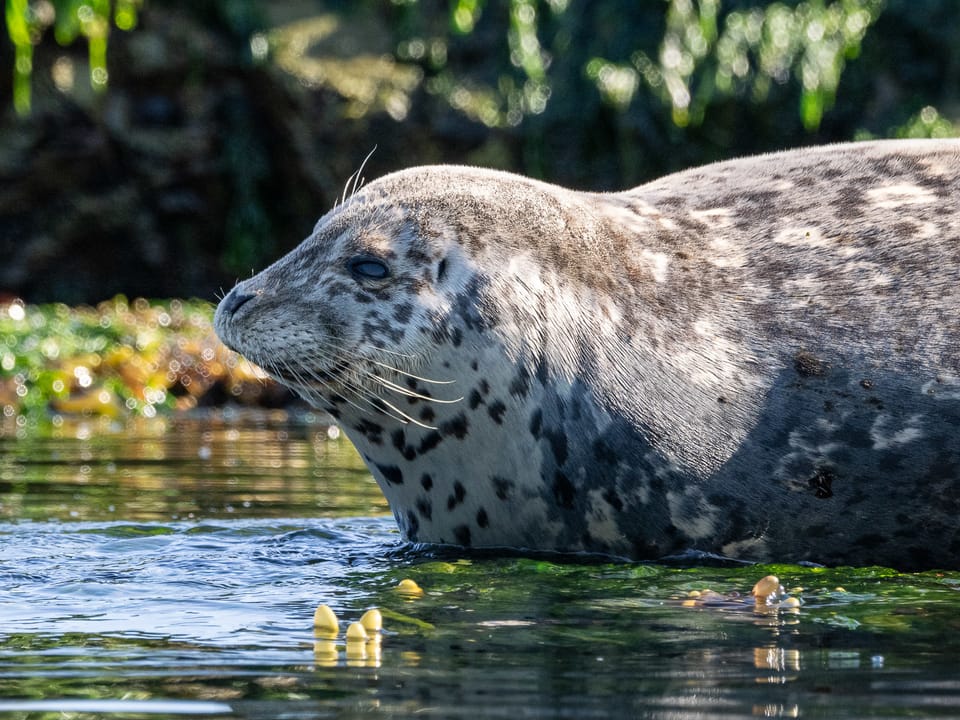EcoWest News, August 1, 2023

Welcome to EcoWest News, a weekly round-up of news and resources that you can put to use in addressing environmental issues and protecting the wild in your community.
Congratulations!
The Saskatoon Nature Society’s Young Naturalists Program is still going strong after 55 years of getting kids outdoors to appreciate nature. [Saskatoon StarPhoenix]
Across the West
Manitoba’s new energy strategy includes wind energy to boost capacity along with evaluating the economic benefits and environmental impact of new industrial developments that use electricity. [CBC]
Hospitals across the Interior of BC are integrating sustainability champion roles in an effort to reduce climate change impacts. [Nelson Star]
Calgary’s biodiversity committee is working with private corporations and residential landowners to introduce more trees and native plants. [National Observer]
As Partners for the Saskatchewan River Basin ends its operations, it provides advice and information for future players in this field, including the importance of a transboundary perspective and educational programs. [PFSRB]
Industry
RCT Solutions plans to establish a solar panel production plant in Manitoba with a total annual production capacity of 10 gigawatts of solar panel power. [Area Development]
The dust from Sparwood’s coal mine contains selenium, uranium, vanadium, germanium, nickel, silver, and zirconium and is carried at least 30 km from the mine before falling to the ground. [Wildsight]
Pemmican Island, Manitoba, an important wildlife habitat, is now a provincial park, free from mining activity. [CBC]
Urban Affairs
With inefficient buildings, a shrinking tree canopy, and infrastructure geared at keeping the cold out and the heat in, Winnipeg has a heat problem. Long-term solutions include upgraded building codes, energy efficiency upgrades, green roofs, and more trees. [The Narwhal]
Nanaimo City Council has adopted the principle of doughnut economics, which recognizes the planet’s ecological limitations. “We can’t grow a healthy economy in an unhealthy environment.” [The Energy Mix]
The City of Saskatoon has inventoried its natural assets as a first step in managing them “with the same amount of care as other critical infrastructure.” [Natural Assets Initiative]
The City of Edmonton wants to encourage bats in the city as they are natural pest predators. Keeping cats indoors and protecting bats’ preferred habitats are two important strategies. [CBC]
Conservation Initiatives
Revelstoke’s Toad Angels are helping endangered Western toads to cross the road on their way to and from their breeding ground. [Wildsight]
Canada’s Spotted Owl is at risk of extinction, but the BC government continues to permit clear-cut logging and target shooting in the owl’s habitat and is lobbying to prevent the federal government from stepping in to save it. [The Narwhal]
Around the World
Wood is a finite resource, and we should be using it more thoughtfully and efficiently. [Anthropocene]
Volunteer drivers are using shared EVs to transport low-income farmworkers in California, while Minneapolis and St. Paul have initiated a municipally owned EV car share. [The Energy Mix]
It’s time for scientists and birders to pay more attention to female birds. Their survival risks and habitat needs are not always the same as those of males. [Smithsonian Magazine]
Archer Mayo wants lead fishing weights and sinkers – which are highly toxic – out of the Columbia River. He advocates for a recovery program and alternatives to lead weights. [Columbia Insight]
Nature’s Wonders
It’s 1,000 years old, 46 metres tall, and 5 metres wide: the kind of tree that’s in danger of disappearing from BC’s landscape due to intensive logging. "It is so incredibly important ... It's an ecosystem unto itself." [CBC]
Some animals try to evade wildfires while others shelter in place. And some species actually need fire to survive. But can they survive the rapid pace of change? [Vox]
Photo credit: https://www.flickr.com/photos/apmckinlay/53050741551/
EcoFriendly West informs and encourages initiatives that support Western Canada’s natural environment through its online publication and the Nature Companion website/app. Like us on Facebook, follow us on Twitter or Mastodon, or subscribe by email.

Member discussion